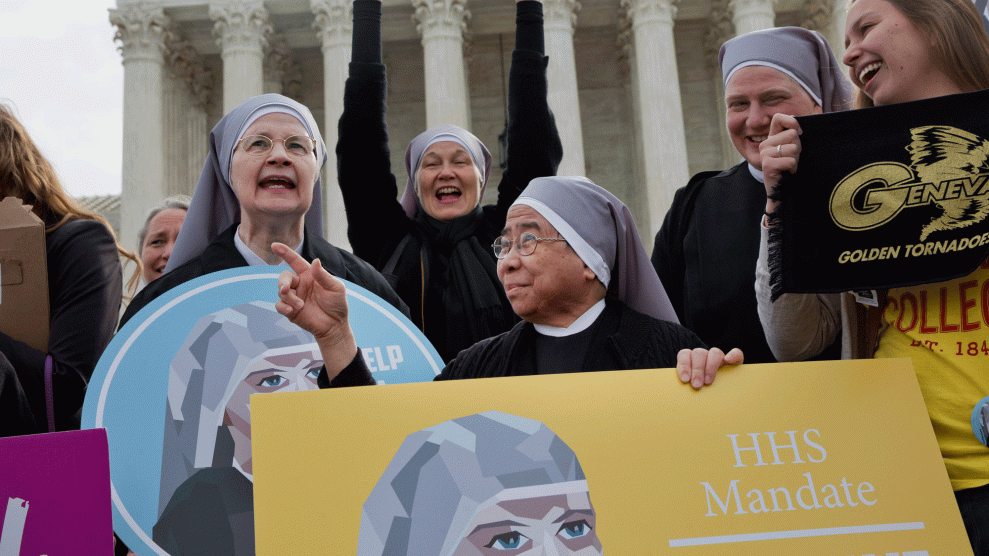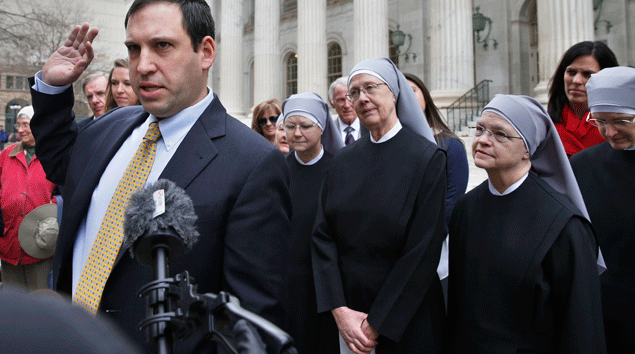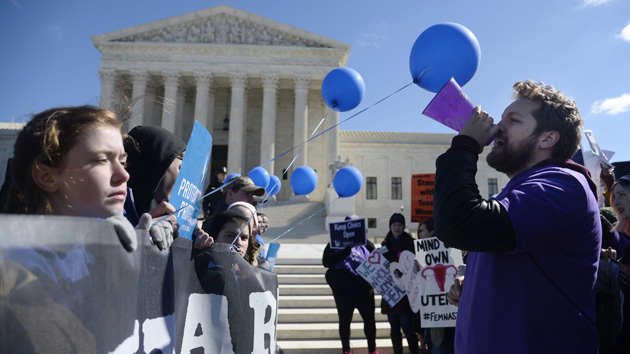
Little Sisters of the Poor demonstrating outside the US Supreme Court during oral arguments in the contraceptive mandate caseAP Photo/Jacquelyn Martin
It didn’t take long for the US Supreme Court to dispense with the most controversial reproductive rights case on the docket this year. In a surprising move on Monday, the court issued an opinion in Zubik v. Burwell, a challenge by several religious organizations to the contraceptive mandate in the Affordable Care Act. The opinion essentially preserves the contraceptive mandate without addressing any of the larger questions about the religious freedom rights of employers.
Religious organizations and orders including Little Sisters of the Poor, a group of nuns who care for the elderly, had objected to a requirement by the Obama administration requiring them to alert the government of their religious objections to providing contraceptive coverage to their employees. The notification would have triggered an accommodation in which the employers’ insurance company would have covered contraception independently, without involving the religious objectors. Little Sisters of the Poor and the other plaintiffs had argued that even notifying the government of their desire to opt-out would have violated their religious beliefs.
The court didn’t rule on the merits of the case and declined to say whether the opt-out notification violated religious freedom rights. Instead, it sent the cases back to the lower courts to work out agreements between the government and the religious employers that would allow employees to have contraceptive coverage in the manner required by Obamacare, without onerous paperwork and without violating the religious freedom of the employers.
The decision was a per curiam opinion, meaning it was unsigned and without a breakdown of the vote. But Justice Sonia Sotomayor wrote a separate concurring opinion, joined by Justice Ruth Bader Ginsburg, highlighting that the decision in no way validates the religious groups’ position, and that it was intended to preserve the contraceptive access of women who worked for those organizations.














